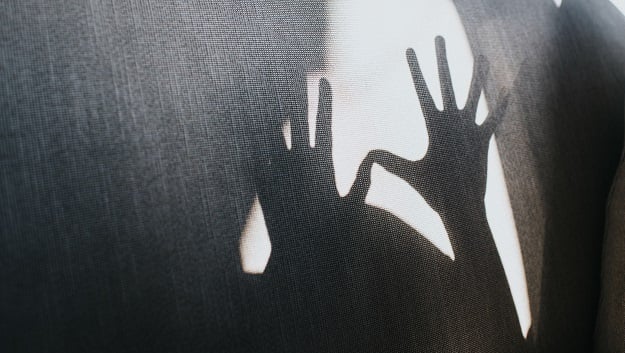
Social media may spread awareness about gender-based violence but the outrage that it elicits never lasts, writes Aphiwe Mhlangulana.
Gender-based violence (GBV) is often referred to as a silent pandemic in South Africa.
Thousands of women are killed yearly and mostly by their intimate partners. Protests and GBV engagements against this scourge are often held to discuss and condemn the violence against women and children, its effects and to try and find ways to address it. GBV has been an issue in the country for many years, with statistics showing an increase in the number of reported cases yearly.
Every year South Africans are outraged at the statistics and reports of horrendous femicide and sexual violence cases.
In 2013, the country was outraged by the rape and gruesome murder of a 17-year-old from Bredasdorp Anene Booysen and, in the same year, the senseless murder of Reeva Steenkamp by her boyfriend Oscar Pistorius. Protests and candlelight vigils were held around the country to mourn the murder of Reeva, Anene and many others who fell victim to femicide that year and in the years before.
A few years later, in 2019, we gathered yet again and mourned the murders of Gomolemo Legae, Leighandre "Baby Lee" Jegels, Precious Ramabulana, Uyinene Mrwetyana, Nthabiseng Rampai, Kgaugelo Tshawane, Aviwe Wellem, Jesse Hess, Meghan Cremer, Nhlanhla Mphahlele and many many others. These murders influenced the start of the hashtag #AmINext.
If it were not for Covid-19, activists and allies would have found themselves on the streets again protesting the violence against women and children. This statement is influenced by the up-to-date GBV statistics of 2020 and the number of articles written documenting the rise in the number of calls reporting violent incidences to NGOs dealing with GBV. Nothing has changed; women still find themselves living in constant fear.
Spreading awareness
The story that grabbed the most attention in 2019 was that of Uyinene Mrwetyana, a 19-year-old UCT student.
Uyinene was raped and murdered by Luyanda Botha, who worked at the Post Office, where Uyinene had gone to fetch a parcel. When Uyinene was not answering her phone, friends and family became worried as this was not her usual behaviour. They mobilised and started looking for her. They printed out posters and banners and posted on social media seeking any assistance.
The use of social media has been a useful tool in helping to spread awareness on missing persons and the spread of GBV and femicide cases. Uyinene Mrwetyana's story was widely shared, gained much attention and influenced many to speak out against GBV and the fears that come with being a woman in the country.
Her story led to many protests around the country, including one outside Parliament attended by thousands. Unfortunately, the traction gained from social media is often short-lived.
South Africans' outrage towards GBV and femicide does not last long enough to influence any significant change. Our anger usually lasts a week, at most a few weeks, and things go back to normal. This was the case in 2019 when a few weeks later protests and engagements discussing GBV died out.
This is one of the reasons GBV persists; we do not see things through. We are only angry, and we only take a stand when a story captures a lot of attention online and mostly when certain people with influence start speaking about the story. Once those individuals stop sharing the stories, we go back to our normal lives. GBV does not end when certain people stop sharing cases on social media.
READ | Opinion: Felleng Yende: We need a collective voice to stop gender-based violence
What happens to those whose stories do not make it to social media or the news? There are many Anene Booysens, there are many Uyinene Mrwetyanas. Some came before them and some after them; their names have gone unnoticed or unspoken. Whose cases have not been solved, whose rapists and murderers still roam the streets. What happens to these names? What happens to their stories? Surely as a country, we need better ways to deal with the GBV issue in the country. Peoples' cases cannot be addressed according to public attention rankings. We should not need to go into the streets and protest or share our traumatic stories on social media for us to get justice.
Perhaps we do not realise that GBV and femicide affects us all.
A woman is killed every three hours
Uyinene could have been any one of us. Anene could have been someone that you know or a member of your family. Statistics show that a woman is killed every three hours in the country. Each one of us is three hours away from losing a loved one or even losing our lives. We cannot wait for someone else to share a story to assist in spreading awareness. We cannot hope for the best. Each one of us needs to take an active stand against this scourge. We cannot leave everything to NGOs and activists. We are stronger in numbers, and for there to be active change, we need to keep the energy going.
One would think that we realised that swift action is only taken when a case has caught the public's attention when there are numerous protests held in the country, and the story has been widely shared on social media. This is when the authorities and our very own government decides to act. How many times have you heard the phrase "we condemn the rape and the killing of women and children" from our government officials? What happens after the condemnation? What tangible actions have we seen from the government between the years 2013 and 2019?
Research has shown that GBV is perpetrated chiefly against women by men. During protests, most attendees are women. Why is this so?
READ | Opinion: Irene Charnley: It is time we become our own leaders and put an end to sexual harassment
I would assume because men are the main perpetrators and because of movements such as 'not all men', more men would be interested in changing this narrative. Why are most men quiet during conversations about addressing GBV? Why have women led most movements against GBV? Why do women have to fight for a right to live freely as though they do not belong in the country?
GBV conversations often involve challenging the narratives around masculinity and patriarchy and encouraging men to have conversations about these in their respective circles. How many men are having these conversations in their circles? Why have we seen a rapid increase in statistics if most men do not perpetuate violence? The silence is deafening. In this instance I support the saying that silence means consent. They are not against the perpetuation of violence because they too are perpetrators and therefore cannot call each other out.
GBV activism should not be seen as a certain groups' duty. This issue affects all of us. We should all take a stand and help address this issue. You should not wait until you are affected directly for you to have a say about it.
- Aphiwe Mhlangulana is a masters student in the Department of Psychology at the University of Cape Town and a member of the Unsettling Knowledge Production on Gendered and Sexual Violence project and the Hub for Decolonial Feminist Psychologies in Africa at UCT.
To receive Opinions Weekly, sign up for the newsletter here.
*Want to respond to the columnist? Send your letter or article to opinions@news24.com with your name and town or province. You are welcome to also send a profile picture. We encourage a diversity of voices and views in our readers' submissions and reserve the right not to publish any and all submissions received.
Disclaimer: News24 encourages freedom of speech and the expression of diverse views. The views of columnists published on News24 are therefore their own and do not necessarily represent the views of News24.




 Publications
Publications
 Partners
Partners
























